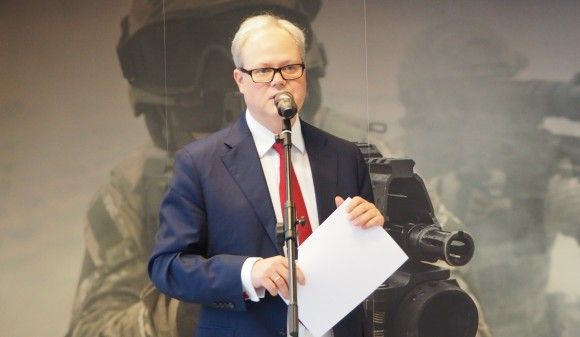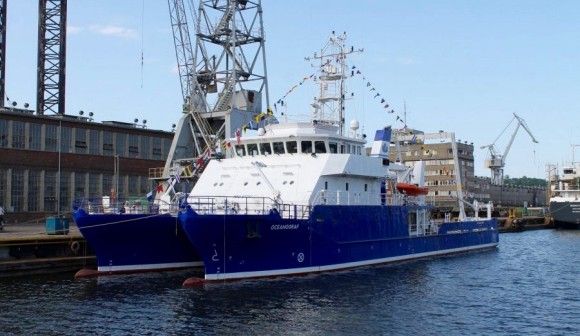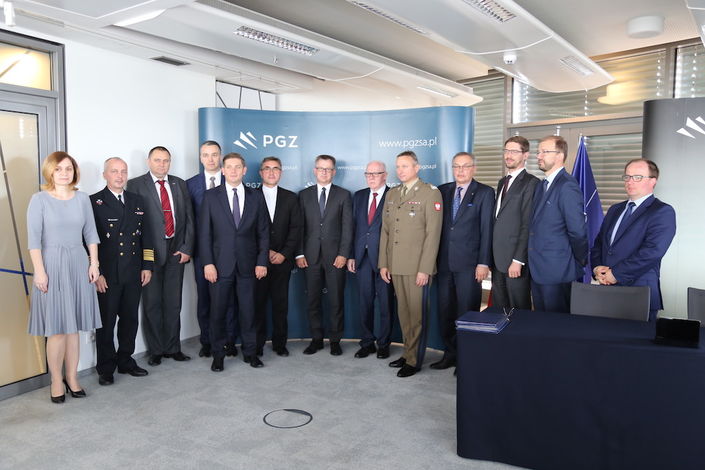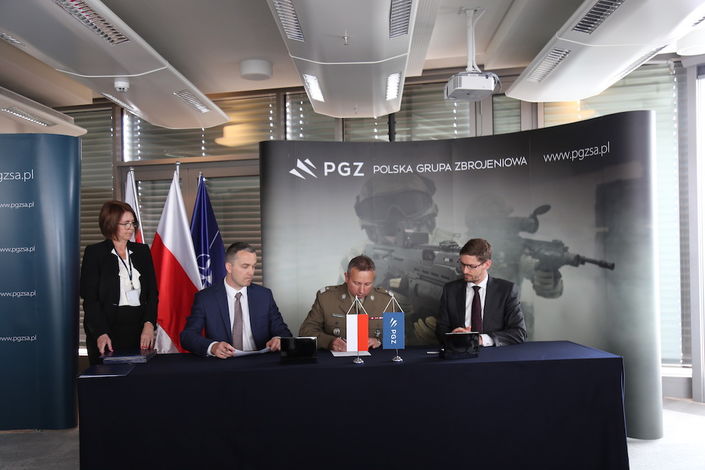Industry
Polish Armaments Group: Cooperation With Universities
Polish Armaments Group has signed cooperation agreements with eight leading Polish Universities. This paves the way towards joint execution of research and development projects in the domain of defence technologies. The event of signing was also attended by the Deputy Minister of Defence, Bartosz Kownacki, and by the Deputy Minister for Science and Higher Education, Piotr Dardziński PhD.
The group of academic centres working together with the Polish Armaments Group has been joined by the following Universities: Westerplatte Heroes Polish Naval Academy, War Studies University, Gdansk University of Technology, Lublin University of Technology, Poznan University of Technology, Cardinal Stefan Wyszyński University, Kazimierz Wielki University in Bydgoszcz, and University of Warmia and Mazury in Olsztyn.
The conclusion of the agreements between the Polish Armaments Group and the listed Universities paves the way towards joint execution of R&D initiatives in the area of defence technologies. This also creates a prospect of collaboration, with regards to commercialization of the solutions that are already in existence, joint effort to receive subsidies for the pursued research and development projects, promotion of results of the undertaken joint effort in scientific and business environments. Polish Armaments Group and Universities, with whom the agreements were signed, will also undertake effort to organize expert conferences, specialist seminars, workshops, clinics and training activities. The contracts also cover joint organization of internships and apprenticeship training at the companies belonging to the PGZ Group. The agreements form a prospect of new majors and specializations being created at the universities.
This is yet another package of agreements that have been signed by the Polska Grupa Zbrojeniowa [PGZ, Polish Armaments Group – eds. note] with the Polish Universities. We want to become one of the leaders of the country’s re-industrialization process, and contributing to expansion of the knowledge-based economy. I am happy with the fact that the research facilities take notice of the opportunities presenting themselves, through collaboration with the defence industry. The defence industry has always been an area, within which the most spectacular technological advancements were being made. I hope that, thanks to the fruitful collaboration, the tradition mentioned here would be jointly continued. The technologies, know-how, innovations, altogether constitute a collective factor which creates the competitive advantage of the Polish defence sector, and they directly translate into operational efficiency of the Polish Armed Forces, which reinforces the national security. Today, with a great degree of satisfaction, I would like to place an emphasis on the fact that science and industry would jointly work to achieve that goal.
Defence, defence industry is a driving wheel of the Polish economy [...]. Arms race, in a contemporary setting, is continuous. It is continuous within the regard which is not quantitative, but qualitative - it takes place in the area of technological advancement. This race cannot be won, without involvement seen on the part of the Polish researchers.
Establishment of industrial and defence competences on the foundation formed by the Polish technology remains one of the priorities of the Polish Ministry of Defence. We want the efforts made by the Polish engineers to be translated into the greatest contribution possible, to the national security. The good collaboration seen between the industry - the Polish Armaments Group in this case - and the scientists is a condition which, if unmet, would make it impossible to create the top class armament. I am convinced that thanks to the good collaboration, dialogue and effective transfer of knowledge between the industry and the Polish Universities and Universities of Technology, the Polish defence companies would stand a chance to continuously and systematically expand their technological potential, which would translate into effective competition on the global defence market and significant increase of defence abilities remaining at the disposal of our military.
The further steps, the inauguration of which has come in a form of conclusion of the agreements between the PGZ and the academia, would concern initiation of work directed towards preparation of joint projects, e.g. in the areas as follows: using unmanned technologies for naval operations (airborne, surface and underwater drones), developing naval systems for protection of critical infrastructure, integrating UAV systems with naval and land platforms, developing a VTOL UAV, developing an air combat simulator for the fighter pilots, developing the assumptions for strategic paths of development of the innovative technologies that could be used by the Polish defence industry to meet the requirements of the Armed Forces, organizing a C4ISR computer lab for training purposes, with a particular emphasis, in the latter case, placed on the needs of the Territorial Defence units.
The main intention of the Polish Armaments Group is to keep the best, the most talented engineers, designers and technology experts close by our side, so that their intellectual capital, gathered during the years of studies at the Polish university, could be utilized in a way which would respond to the Polish needs, not only reinforcing the Polish security, but also contributing to expansion of the economy.
Development, acquisition and implementation of innovative technologies is one of the strategic assumptions adopted for the business activities undertaken by the Polish Armaments Group. The Group is in possession of its own R&D facilities. The Polish Armaments Group has also established cooperation with military and civil universities, including Military University of Technology, Warsaw University of Technology, Silesian University of Technology, Rzeszów University of Technology, Kielce University of Technology, John Paul II Catholic University of Lublin, and Kazimierz Pulaski University of Technology and Humanities in Radom. Moreover, Polska Grupa Zbrojeniowa S.A. [Polish Armament Group] and the Inspectorate for Implementation of Innovative Defence Technologies (I3TO) have signed an agreement on collaboration.




